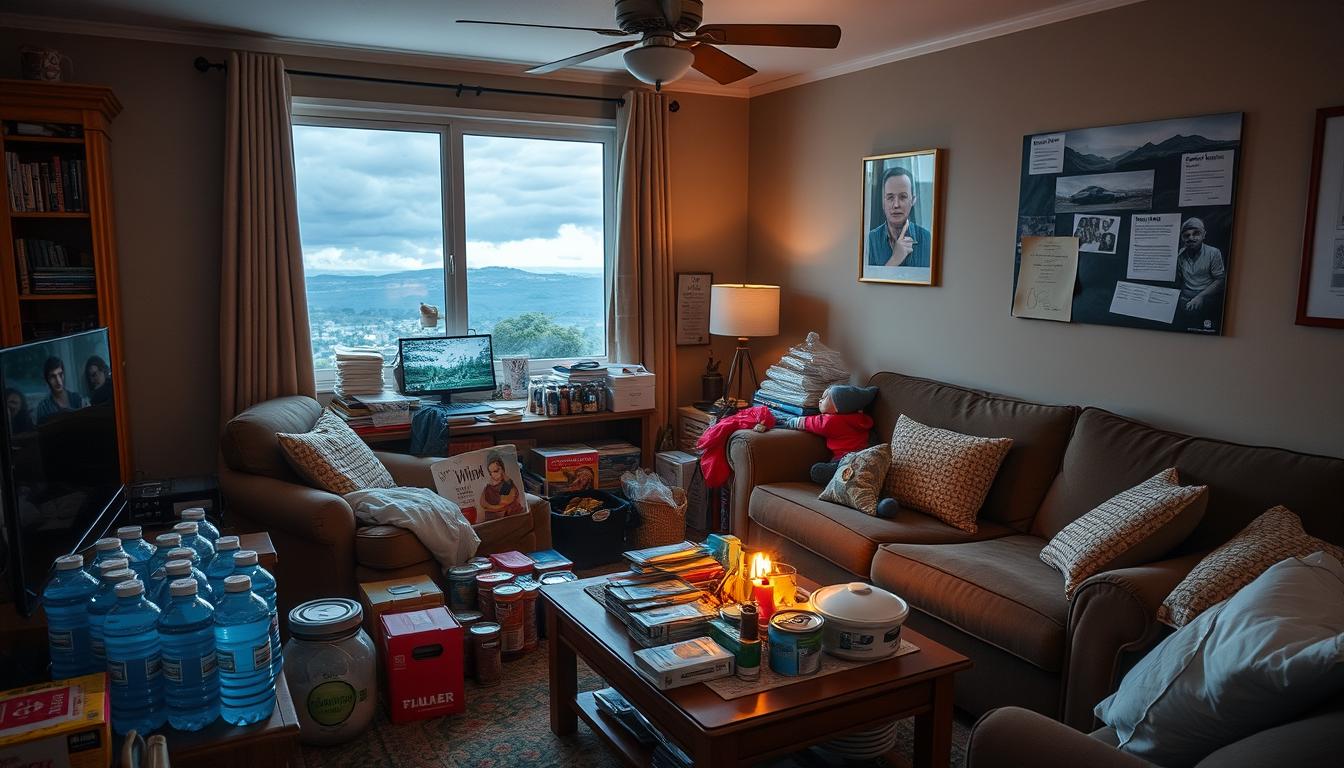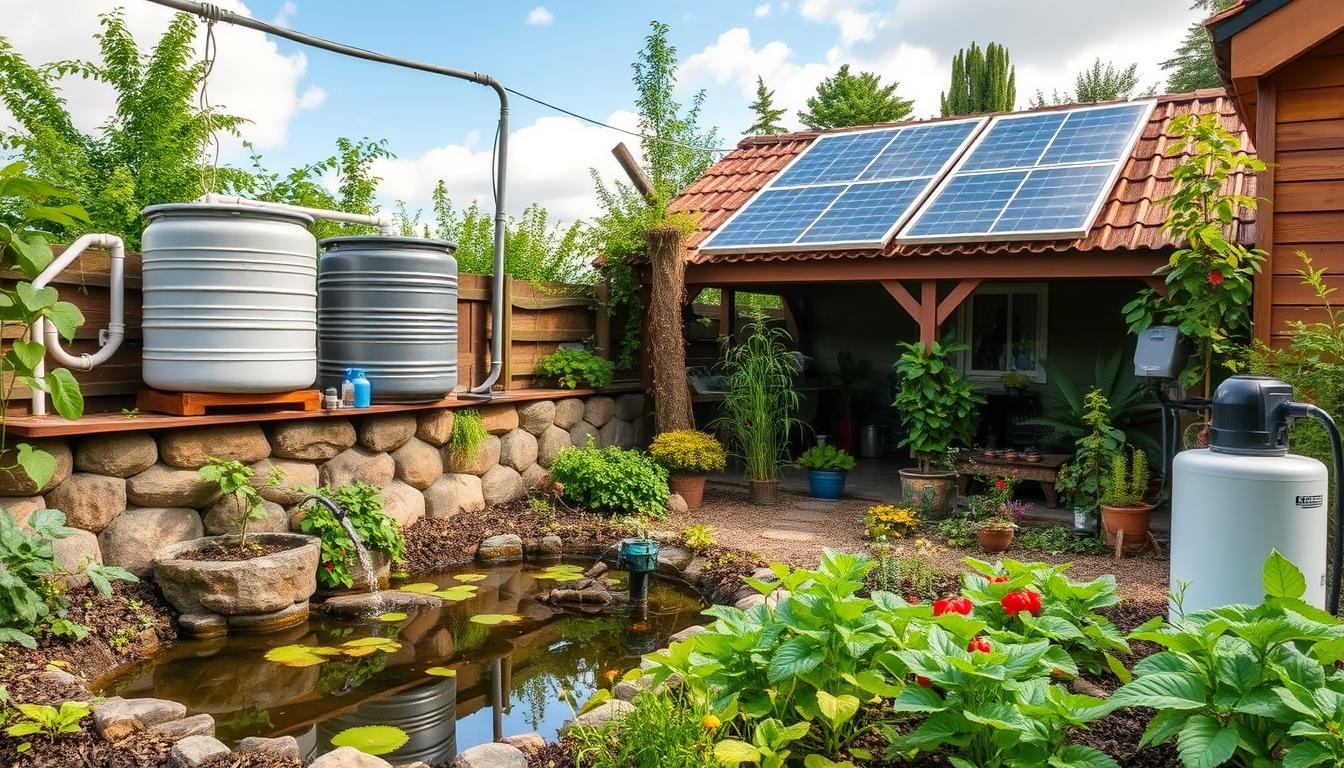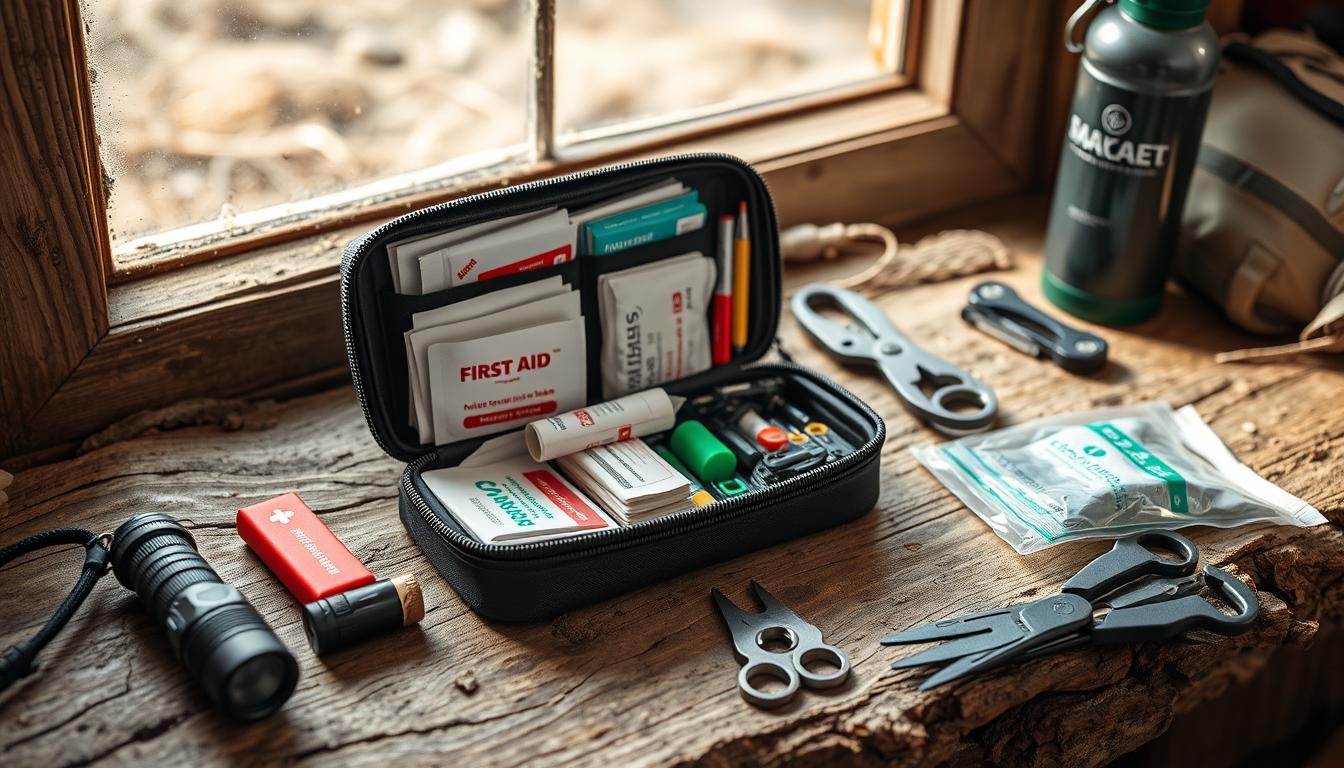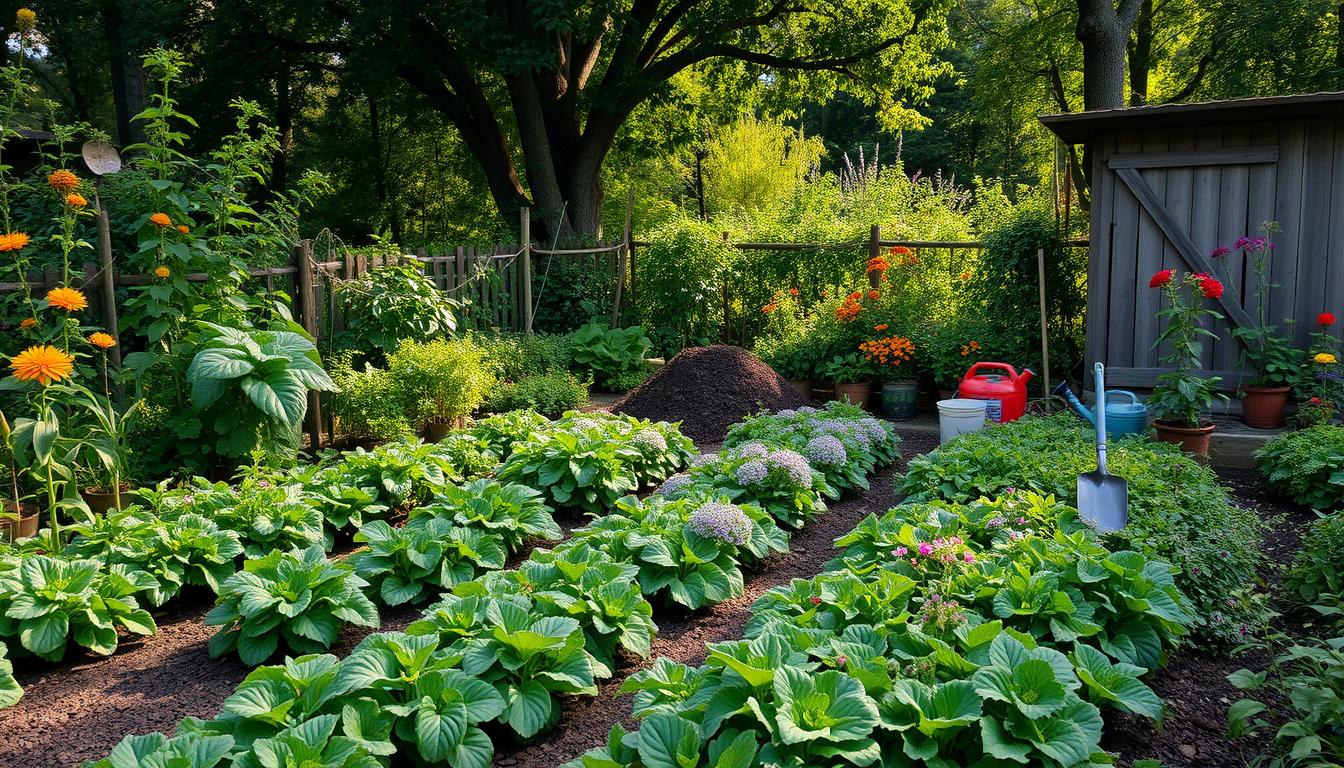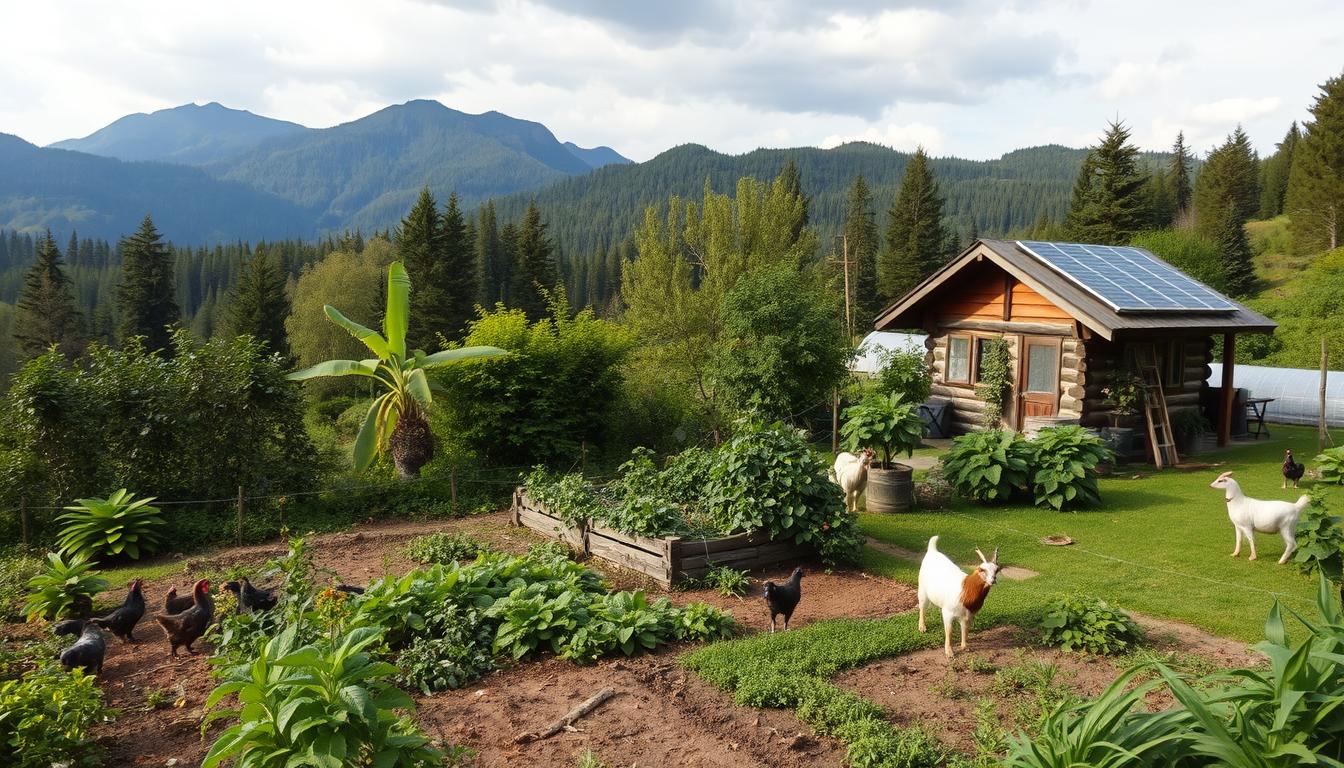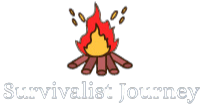In today’s changing world, being ready for sudden crises is crucial. It could be a natural disaster, a pandemic, or a power outage. Having your home ready can protect your family’s safety and well-being. This guide offers key tips and strategies to make your home safe and ready for emergencies.
Key Takeaways
- Understand the importance of crisis preparedness for your home
- Learn to mitigate risks and ensure the safety of your living space
- Discover essential survival skills to build resilience for unexpected events
- Explore comprehensive strategies for stockpiling essential supplies
- Discover ways to create a secure and self-sufficient living environment
Why Preparing Your Home For a Crisis is Crucial
In today’s world, getting your home ready for a crisis is key. It could be a natural disaster, a financial crisis, or a big societal change. Being ready can help you get through tough times better. It helps you avoid risks and be strong when unexpected things happen.
Mitigating Risks and Ensuring Safety
Your home is a safe place for you and your family during a crisis. Preparing it can greatly lower risks and keep your family safe. This means looking for dangers, making your property safe, and having emergency plans.
Building Resilience for Unexpected Events
Getting your home ready for a crisis is not just about reacting to emergencies. It’s also about being strong over time. By focusing on crisis preparedness and learning survival skills, you can handle and bounce back from surprises. This gives you peace of mind and makes you stronger to face any challenge.
As a Prepper, you know how important it is to act early to protect your home and family. This approach makes sure your family is ready for any crisis. It boosts your safety and well-being.
“Preparedness is not about fear, it’s about empowerment and resilience.”
Preparing Your Home For a Crisis: A Comprehensive Guide
Getting ready for a crisis means having a solid plan for your home. This guide will show you how to make your home safe for emergencies, like natural disasters or civil unrest. By taking these steps, you can make your home a safe place for you and your family during tough times.
Stockpiling Essential Supplies
Having the right supplies is key to being prepared. Start by making a list of must-haves, like food, water, first-aid kits, and hygiene products. Try to stock up enough for two weeks, but more is better for crisis preparedness.
- Non-perishable food items with a long shelf life
- Bottled water or a reliable water filtration system
- Medications, bandages, and other first-aid essentials
- Sanitary and hygiene supplies
Securing Your Living Space
Next, make your home stronger and safer. Install sturdy locks, reinforce windows, and consider adding backup power sources. These steps will make you feel safer and more ready to face threats.
- Upgrade locks on all entry points, including doors and windows
- Ensure your home’s structural integrity and consider reinforcing key areas
- Invest in a reliable backup power generator or solar panels
Developing Survival Skills
It’s not just about having things ready. You also need to develop essential survival skills. Learn basic first aid, how to start a fire, and how to navigate. Practice these skills often to stay sharp and ready for anything.
“Being prepared for a crisis is not about living in fear, but about empowering yourself and your family to weather the storm.”
This guide will help you turn your home into a crisis preparedness stronghold. From gathering supplies to securing your home and learning survival skills, you’ll be ready for any surprise. This way, you can keep your loved ones safe.
Stockpiling Essential Supplies
Having the right supplies ready can really help in a crisis. It’s important to stock up on things that can keep your family safe and healthy during tough times. This includes food, water, first aid, and hygiene items.
Food and Water Storage
During a crisis, having enough food and clean water is key. Experts suggest storing at least 1 gallon of water per person each day. Also, keep a variety of non-perishable foods that are high in calories and nutrients.
Good options include canned goods, dried fruits, nuts, and grains. These items are easy to store and last a long time. Also, consider getting a water filtration system and emergency water containers for extra safety.
First Aid and Hygiene Essentials
Having a well-stocked first aid kit and hygiene supplies is vital for staying healthy in a crisis. Your first aid kit should have bandages, antiseptic wipes, pain relievers, and any prescription medicines you need. Don’t forget hygiene items like soap, toothpaste, feminine products, and toilet paper.
For effective crisis preparedness, make sure your supplies are diverse and complete. Check and replace items regularly to keep them fresh and ready to use. By preparing with the right supplies, you can greatly improve your family’s chances of getting through any crisis.
Creating a Safe and Secure Living Space
Preparing your home for crises means more than just stockpiling supplies. It’s about making your home safe and secure. This includes taking steps to protect your home and keep your family safe during emergencies.
Emergency Power and Lighting Solutions
Having reliable emergency power and lighting is key for a crisis-ready home. Power outages can leave you in the dark and disrupt essential services. To avoid this, think about getting a backup generator or solar-powered batteries for electricity. Also, emergency lights can help you move around safely and keep things normal during a crisis.
Here are some steps to make your home’s power and lighting more resilient:
- Install a backup generator or solar-powered batteries for constant power
- Put emergency lights in important areas like hallways and living spaces
- Have extra batteries, candles, and portable lights ready
- Learn how to use your emergency power and lighting systems
These steps help make your home safe and independent during crises. They lessen the effect of power outages on essential services.
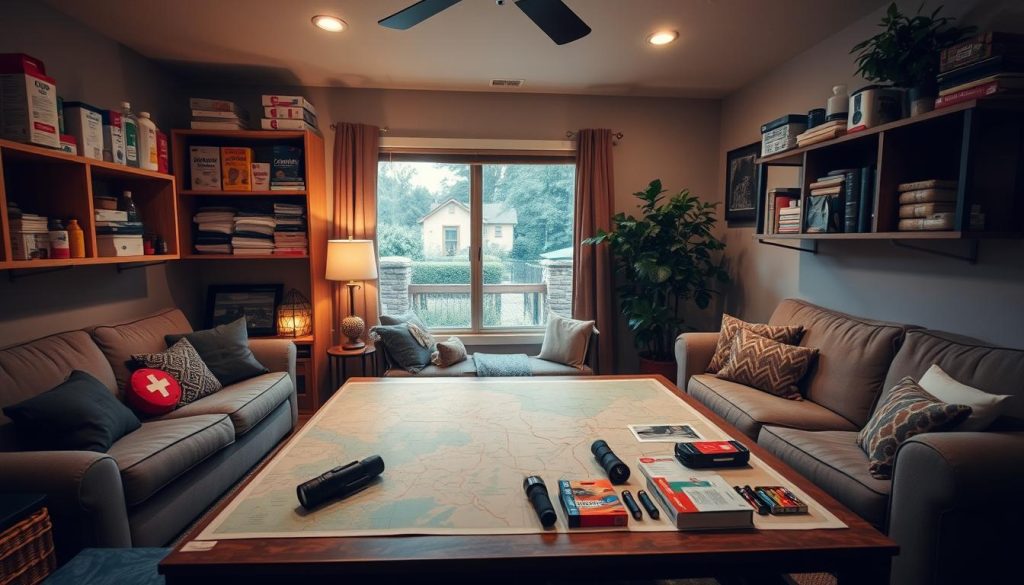
“Preparation is the key to survival. Ensuring your home has reliable power and lighting is vital for crisis preparedness.”
For Preppers or those focused on crisis preparedness, these steps are simple yet powerful. They offer peace of mind and control to face any challenge. Survival skills are not just about supplies. They’re also about making a strong and secure home for the future.
Developing Survival Skills
When a crisis hits, having key survival skills can be a game-changer. As a Prepper, learning these skills is smart. They boost your ability to handle emergencies and build confidence in yourself.
Learning first aid is a must. It helps you treat minor injuries, stop bleeding, and give basic medical care. This is crucial when help isn’t around. Also, knowing how to start a fire and purify water is key to staying warm, hydrated, and fed during tough times.
Skills in navigation and wilderness survival are also vital. They let you move safely and find your way if you need to leave quickly. Plus, learning to build outdoor shelters and forage for wild foods can make you more resilient.
“The more skills you have, the more self-reliant you can be in a crisis. Invest in your survival skills today to ensure a brighter tomorrow.”
By learning a wide range of survival skills, Preppers can get ready for emergencies better. It’s important to start learning these skills now, before an emergency happens.
Establishing Communication and Emergency Plans
When a crisis hits, having good communication and emergency plans is key to staying safe. As a Prepper, it’s crucial to pick reliable ways to talk and make solid emergency plans. This helps you and your loved ones stay updated and connected when things get tough.
Staying Connected and Informed
During a crisis, usual ways to communicate might not work well. To keep in touch, think about these ideas:
- Get a dependable, off-grid device like a satellite phone or two-way radio to talk to family and emergency teams.
- Make a list of emergency numbers, including local authorities, hospitals, and trusted friends or neighbors.
- Set up a meeting spot or use a pre-planned social media group or messaging app to keep in touch and plan together.
Remember, being ready for a crisis means not just having supplies but also the tools and plans to stay connected and informed.
“Preparation through education is less costly than learning through tragedy.” – Max Lyons
Putting time and effort into making good communication plans and emergency strategies helps you face a crisis better. It also keeps your family safe.
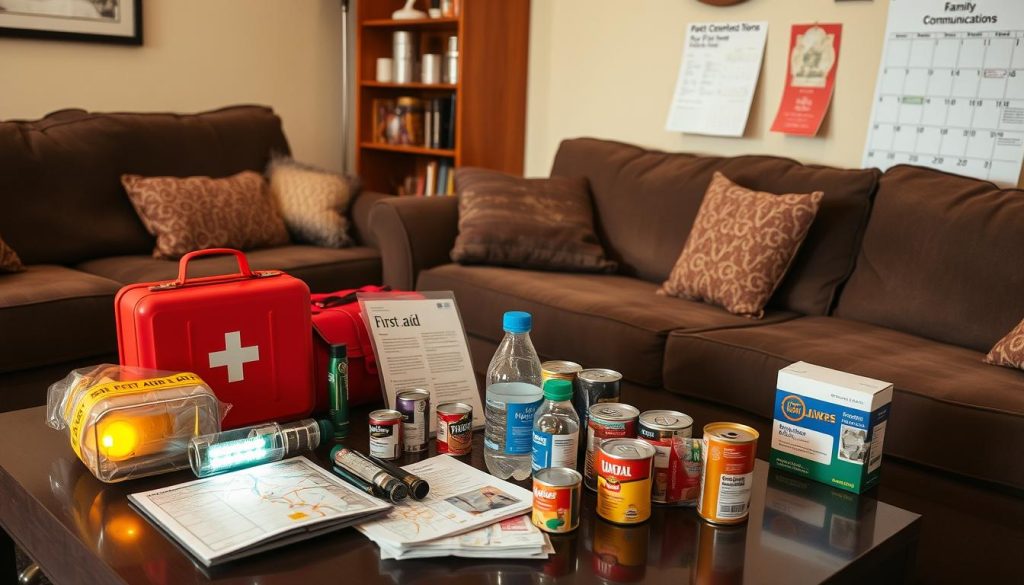
Preparing Your Home For a Crisis: Financial Readiness
Financial readiness is often overlooked in crisis preparedness, but it’s key to keeping your family safe. Having emergency funds and the right insurance can protect your finances. This ensures you have resources to get through tough times.
Emergency Funds and Insurance
As a Prepper, having an emergency fund is a must. It should cover three to six months of living costs. This fund helps you handle sudden job loss or medical emergencies without touching long-term savings. Also, check your insurance policies to make sure you’re covered for everything you need.
- Aim to build an emergency fund with three to six months’ worth of living expenses
- Review your insurance policies to ensure you have adequate coverage for your needs
- Consider additional policies, such as flood or earthquake insurance, if you live in high-risk areas
Planning for your financial security reduces stress and uncertainty during a crisis. With a strong emergency fund and the right insurance, you can focus on keeping your family safe.
“Proper financial planning is the foundation of crisis preparedness. It’s the first step in building resilience and protecting your family’s future.”
Remember, getting ready for a crisis involves more than just physical and mental preparation. Financial readiness is a key part. By making sure your finances are in order, you’re better prepared to face any challenges.
Mental and Emotional Preparedness
Getting ready for a crisis is more than just stockpiling supplies. It’s also about keeping your family’s mental and emotional health strong. When things get tough, staying resilient and supporting each other is key. It’s as important as having enough food and water.
As a Prepper, it’s vital to know how to handle anxiety and fear during emergencies. You might learn stress-reducing techniques like mindfulness meditation. Building a strong community and support network is also crucial.
Putting mental health first helps your family deal better with emergencies. Learning skills like solving problems and handling conflicts makes them more resilient. This way, they can stay calm and think clearly in tough times.

